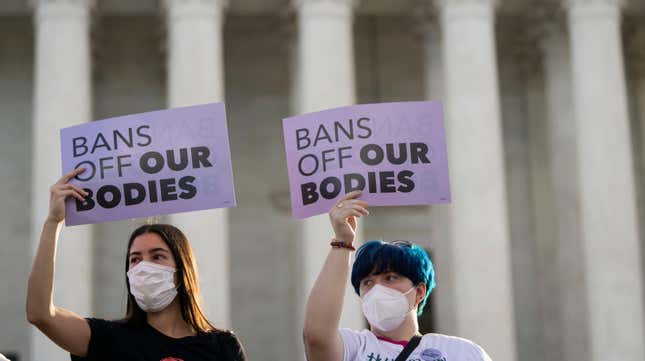No, the US Isn’t an Extreme Outlier on Abortion
Sure, other countries restrict abortion earlier in pregnancy than the US. They also have broad social safety nets that support families.
AbortionPolitics

Stop me if you’ve heard this one before: The United States is one of just seven countries worldwide, alongside China and North Korea, that allow “elective” abortions after 20 weeks of pregnancy. This line has been used on the Senate floor, in Trump administration policy statements, and dissents from court rulings to paint the US as extreme in terms of abortion leniency. (Two of the other countries on that list are Canada and the Netherlands, but Republican lawmakers oddly never mention those.)
The factoid was cited this summer in the Supreme Court brief from Mississippi Attorney General Lynn Fitch to defend the state’s 15-week abortion ban. The law has never taken effect because it’s unconstitutional under Roe v. Wade, but Fitch explicitly asked the high court to overturn Roe in the case it’s hearing on Wednesday.
The “seven countries” claim is technically true on paper, but not in practice: The US is more restrictive than anti-abortion activists suggest, and many other countries with nominal bans before 20 weeks have broad exceptions and, crucially, vast social safety nets that support children and families. This is where the US is truly the exception, said Melissa Murray, professor at New York University School of Law and an expert in reproductive rights and family law.
“These other countries have more robust supports for families that make the whole question of whether to continue a pregnancy just an entirely different calculus for a pregnant person,” Murray said. Since the US doesn’t have universal healthcare, marriage is how some people get their health insurance here, and married couples get bigger tax breaks for their kids than do single parents. “In our country, marriage is the way that we patch up what is a tattered social safety net,” she said. No amount of free diapers from the anti-abortion Christian safety net will fix this.
-

-

-

-

-

-

-

-

-

-

-

-

-

-

-

-

-

-

-

-

-

-

-

-

-

-

-

-

-

-

-

-

-

-

-

-

-

-

-

-








































